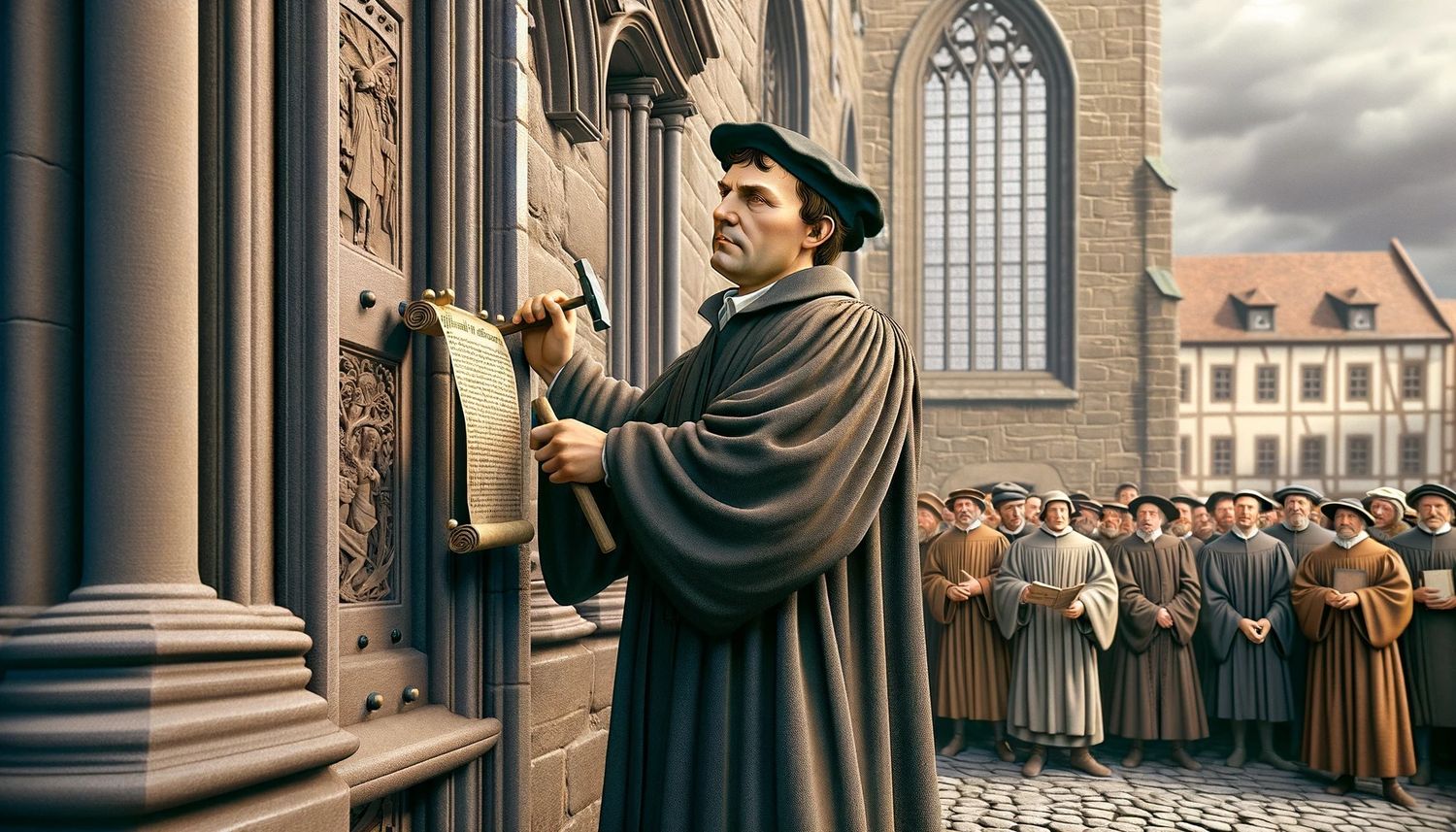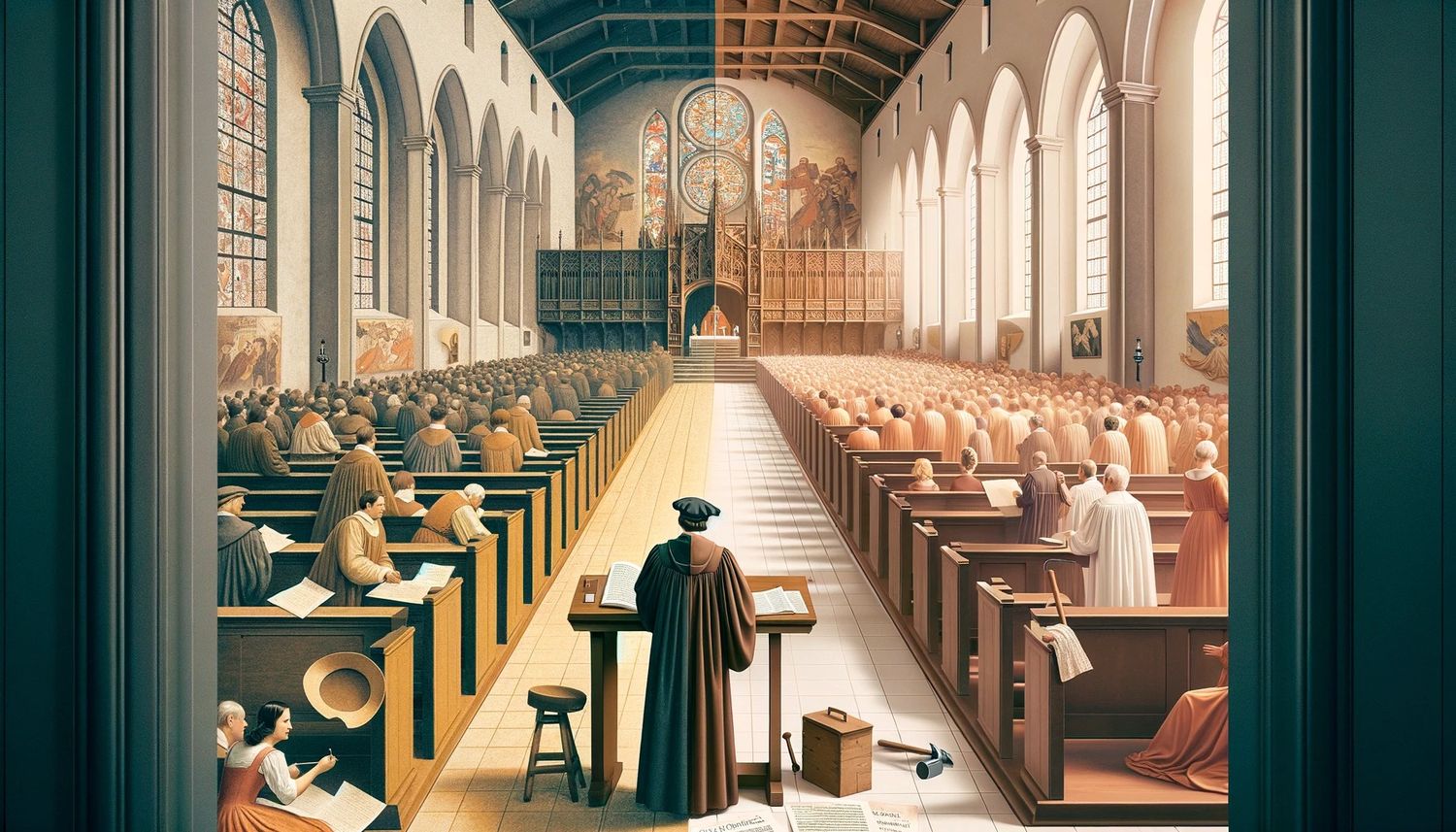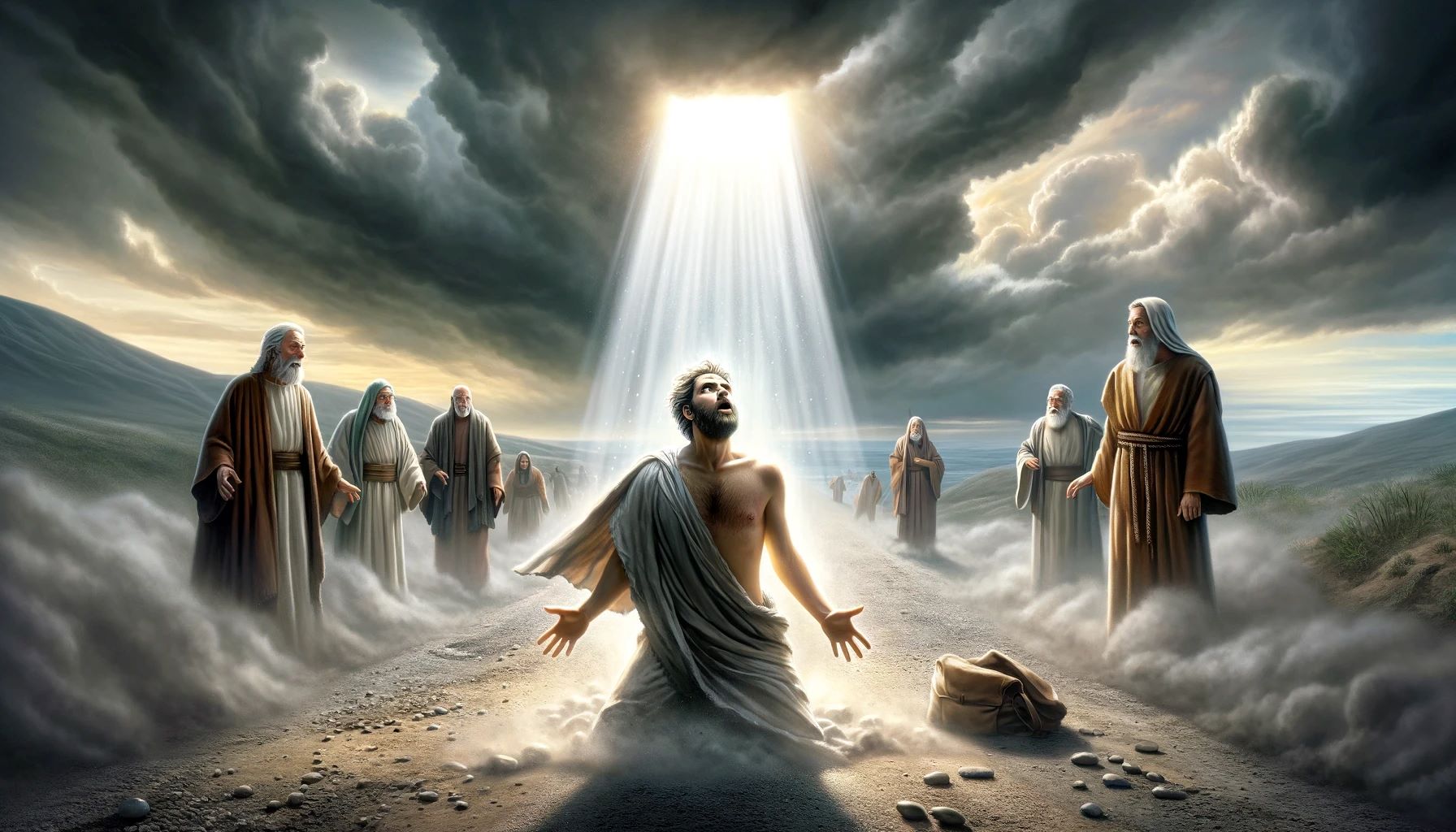Home>Theology and Spirituality>What Was The Main Issue That Sparked The Lutheran Reformation?


Theology and Spirituality
What Was The Main Issue That Sparked The Lutheran Reformation?
Published: March 3, 2024
Ericka Andersen, an editor at Christian.net, expertly merges digital strategy with content creation, focusing on faith and societal issues. Her communication skills enhance the platform's engaging narratives, fostering meaningful dialogue on belief's impact on society.
Discover the main issue that ignited the Lutheran Reformation and its impact on theology and spirituality. Explore the historical context and significance.
(Many of the links in this article redirect to a specific reviewed product. Your purchase of these products through affiliate links helps to generate commission for Christian.net, at no extra cost. Learn more)
Table of Contents
The Corrupt Practices of the Catholic Church
The main issue that sparked the Lutheran Reformation was the corrupt practices of the Catholic Church. During the 16th century, the Catholic Church was plagued by various corrupt practices that deeply troubled many devout Christians. These practices included the sale of indulgences, the immorality and worldliness of the clergy, and the excessive wealth and power of the Church. These issues led to a growing sense of disillusionment and dissatisfaction among the faithful, ultimately culminating in the Reformation movement led by Martin Luther.
-
Sale of Indulgences: One of the most controversial practices of the Catholic Church was the sale of indulgences. Indulgences were essentially pardons for sins, and they could be purchased from the Church. This practice not only led to financial exploitation of the faithful but also raised moral concerns about the true nature of repentance and forgiveness.
-
Immorality and Worldliness of the Clergy: Many members of the clergy were criticized for leading lives that were inconsistent with the teachings of Christianity. Reports of corruption, indulgence in worldly pleasures, and neglect of their spiritual duties caused widespread resentment among the laity.
-
Excessive Wealth and Power of the Church: The immense wealth and political influence of the Catholic Church were sources of contention for many. The Church's opulence and its involvement in secular affairs led to questions about its true commitment to the spiritual well-being of its followers.
-
Lack of Access to Scriptures: Another issue that troubled many was the limited access to the Scriptures. The Bible was primarily available in Latin, a language that was not understood by the majority of the population. This lack of access to the Word of God created a sense of dependency on the clergy for spiritual guidance and interpretation.
The culmination of these corrupt practices within the Catholic Church created a climate of dissatisfaction and unrest among the faithful. Martin Luther, a German monk, took a stand against these issues by posting his famous 95 Theses, which sparked a movement that would eventually lead to the establishment of the Lutheran Church and the broader Protestant Reformation.
Martin Luther's 95 Theses
-
Martin Luther's 95 Theses, written in 1517, were a set of propositions that challenged the practices of the Catholic Church, particularly the sale of indulgences. Luther's act of nailing the 95 Theses to the door of the Castle Church in Wittenberg is often regarded as the symbolic beginning of the Protestant Reformation.
-
The 95 Theses were written in Latin and were intended for scholarly debate among theologians and church authorities. However, due to the invention of the printing press, the Theses were quickly translated into German and disseminated widely, sparking public discussion and controversy.
-
Luther's Theses addressed the theological concept of repentance and the role of indulgences in the forgiveness of sins. He argued that true repentance required a genuine change of heart and that the Church's emphasis on the purchase of indulgences undermined the true nature of penitence.
-
Luther's critique of the sale of indulgences in the 95 Theses challenged the authority of the Pope and the Church hierarchy. He questioned the legitimacy of the Church's practices and called for a return to the teachings of the Bible as the ultimate authority in matters of faith and salvation.
-
The 95 Theses also called for a reexamination of the role of the clergy and the Church's relationship with the laity. Luther emphasized the priesthood of all believers and advocated for a more direct and personal connection between individuals and God, bypassing the need for intermediaries such as priests and indulgences.
-
The impact of Martin Luther's 95 Theses was profound, as it ignited a wave of religious and social upheaval throughout Europe. The widespread dissemination of the Theses and the ensuing debates contributed to the erosion of the Church's authority and laid the groundwork for the emergence of Protestantism as a distinct religious movement.
-
Ultimately, the 95 Theses challenged the status quo and set in motion a transformation of religious thought and practice that reverberated far beyond Luther's time, shaping the course of Western Christianity and leaving a lasting legacy in the history of the Church.
The Sale of Indulgences
The sale of indulgences was one of the most contentious practices of the Catholic Church during the 16th century. Indulgences were essentially pardons for sins, and they could be purchased from the Church. This practice not only led to financial exploitation of the faithful but also raised moral concerns about the true nature of repentance and forgiveness. The concept of indulgences was based on the belief that the Church, through its spiritual authority, could grant remission of the temporal punishment in purgatory for sins that had been confessed and forgiven. However, the sale of indulgences turned this spiritual concept into a commercial transaction, where individuals could essentially buy their way to forgiveness without genuine contrition. This practice not only undermined the integrity of the Church but also created a sense of moral ambiguity and disillusionment among the faithful. The sale of indulgences became a symbol of the corruption and moral decay within the Church, ultimately contributing to the growing discontent that fueled the Reformation movement led by Martin Luther.
The Authority of the Pope
-
The authority of the Pope was a central issue that sparked the Lutheran Reformation. During the 16th century, the Pope held immense power and influence within the Catholic Church. The Pope was regarded as the supreme spiritual leader, with the authority to interpret and define doctrine, administer sacraments, and govern the Church. This concentration of power in the hands of the Pope raised concerns about the potential for abuse and the lack of accountability within the Church hierarchy.
-
The concept of papal infallibility, which asserted that the Pope was free from error when pronouncing on matters of faith and morals, further solidified the Pope's authority. This notion of infallibility elevated the Pope to a position of unquestionable supremacy, leaving little room for dissent or alternative interpretations of Christian doctrine.
-
The authority of the Pope also extended to matters of governance and administration within the Church. The Pope wielded significant political influence, often intervening in secular affairs and exerting control over the rulers of various European states. This intertwining of spiritual and temporal power raised concerns about the Church's independence and its commitment to serving the spiritual needs of its followers above worldly interests.
-
The concentration of authority in the hands of the Pope also led to questions about the role of the individual believer within the Church. The hierarchical structure of the Catholic Church, with the Pope at its apex, created a sense of distance between the laity and the divine, fostering a dependency on the clergy for spiritual guidance and access to God's grace.
-
Martin Luther's challenge to the authority of the Pope was a pivotal aspect of the Reformation movement. Luther questioned the Pope's infallibility and emphasized the primacy of the Bible as the ultimate authority in matters of faith. He advocated for a more direct relationship between individuals and God, bypassing the need for intermediaries such as the Pope and the clergy. Luther's rejection of papal authority and his call for a reformation of the Church's governance and doctrine laid the groundwork for the emergence of Protestantism as a distinct religious tradition.
-
The issue of the Pope's authority was a catalyst for profound theological and ecclesiastical debates that reshaped the religious landscape of Europe. The Reformation challenged the unchecked power of the Pope and paved the way for diverse interpretations of Christianity, marking a significant shift in the understanding of spiritual authority and the relationship between the individual believer and the Church.
The Translation of the Bible into Vernacular Languages
-
The translation of the Bible into vernacular languages played a pivotal role in the Lutheran Reformation. Prior to the Reformation, the Bible was primarily available in Latin, a language that was inaccessible to the majority of the population. This limited access to the Scriptures created a sense of dependency on the clergy for spiritual guidance and interpretation. The translation of the Bible into vernacular languages, such as German, English, and other local dialects, was a revolutionary development that empowered individuals to directly engage with the Word of God.
-
The translation of the Bible into vernacular languages was a direct challenge to the authority of the Catholic Church, which had maintained control over the interpretation and dissemination of the Scriptures. By making the Bible accessible to the laity in their native languages, the Reformation movement democratized access to religious knowledge and encouraged personal study and reflection on the teachings of Christianity.
-
The translation of the Bible into vernacular languages also contributed to the spread of Protestant ideas and the formation of distinct national and regional identities. As the Scriptures were translated into the languages spoken by ordinary people, it fostered a sense of cultural and linguistic pride, reinforcing the connection between faith and local communities.
-
The translation of the Bible into vernacular languages facilitated the communication of Protestant theology and principles to a wider audience. It enabled individuals to critically engage with the teachings of the Church and compare them with the message of the Bible, leading to a reevaluation of traditional religious practices and beliefs.
-
The translation of the Bible into vernacular languages was a transformative aspect of the Reformation, as it empowered individuals to interpret and apply the Scriptures according to their own understanding and conscience. This shift in access to religious texts contributed to the diversification of religious thought and the emergence of Protestant denominations with distinct doctrinal emphases.
-
The translation of the Bible into vernacular languages not only revolutionized the religious landscape of Europe but also laid the foundation for the development of national literatures and the advancement of literacy among the populace. The availability of the Bible in vernacular languages had far-reaching implications for the cultural, intellectual, and spiritual life of communities across the continent.
-
The translation of the Bible into vernacular languages stands as a testament to the enduring impact of the Reformation on the accessibility of religious knowledge and the empowerment of individuals to engage with their faith on a personal and communal level. This monumental shift in the dissemination of the Scriptures continues to resonate in the religious practices and traditions of diverse Christian communities to this day.















